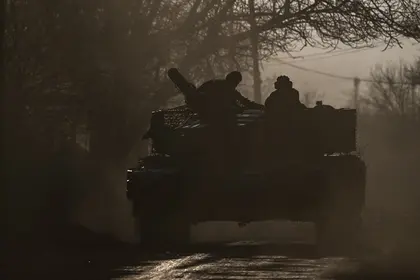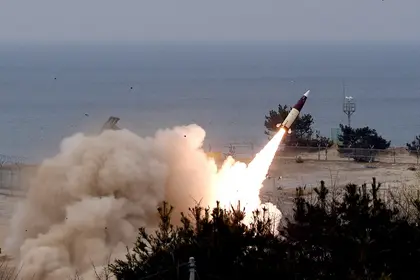In an exclusive but anonymous interview, the commander of a tank unit fighting near Bakhmut spoke with Kyiv Post over the telephone about conditions on the front-lines.
“The worst thing is when you first get to the front under the heavy shelling,” he said. “Preparing for this is impossible. Your body automatically huddles to the ground as much as possible. Going through drills at the training grounds is one thing, but when you smell death, it is terrifying, and this reaction is normal. Over time, you don't react the same way to things that terrify ordinary people.”
JOIN US ON TELEGRAM
Follow our coverage of the war on the @Kyivpost_official.
Disputing some reports, the commander noted that the Russian forces that he has faced have shown no shortage of ammunition nor heavy artillery, while his own higher-ups instructed his unit to use shells sparingly and only on select targets. Other basic needs like food and shelter have never been in ready supply, he said.
“When we go to the front lines, no one provides us with accommodation,” he explained. “So, we look for old abandoned houses and hide our equipment there. Then, we try to find a better house and rustle up some food. The main thing is that it should be at least a little warm and have some stove or tiles to cook on. Usually, there are such houses, and we are more or less comfortable as much as that is possible.
“Sometimes you sleep in the car or somewhere else, but we usually find a way to rest, which is very important. We eat what the Armed Forces provide, which is only sometimes good. In winter, there were huge problems with the water supply.

Russians Reportedly Shift Military Equipment and Ammo from Crimea to Kursk
“Usually, we want to sleep in late, but that's not always possible. If there are quiet moments, no one wakes anyone up for breakfast. There are many nervous people there, so giving them a chance to rest is essential.”
The first thing a soldier needs to understand is that he is going to be stressed, the tank commander said.
“This is the first step, and then that person will start looking for a way out, to feel better. Many people do not understand that they are stressed and can be very aggressive, making it difficult to calm them down. I am the head of a unit, and I face this very often. I make jokes and use humor to ease the tension.
“The second method is to talk to them in private. I say: ‘You know, we are all in a similar situation. Who is waiting for you at home?’ The guy starts to cry, tears flow, and it's normal. Emotions come out. A person remembers the happy moments of his life, gets out of this reality a little bit, and then plunges into positive memories. It helps a lot, and I'm saying this from experience because it has helped me, too. I tried to take sedatives, but it didn't help.”
It's even more challenging for those who have been on vacation before returning to battle, the officer said. They've been home, seen their families and children, and it's psychologically difficult for them to return.
“People in Kyiv go to work as usual,” he said. “I see how unhurried everyone is here as if there is no war. Not everyone is in the same situation. They have yet to see what we have seen, and maybe it's better that they haven't.”
However, he noted, civilian volunteers have helped out with things like generators, and his wife started a collection for a car, and they were able to buy one.
“I was amazed that strangers helped,” he said. “The military only sometimes supports such initiatives. There was a commander who helped with supplies, but the new one now refuses to accept official help from volunteers, thereby avoiding any responsibility,” he said.
The commander also alleged that there was a manage-up culture in the military.
“When the high command visits us, my comrades ask me to keep quiet about the problems and show that everything is excellent. My colleagues are keen to please the high command. It’s like in the Soviet Union. But why should I keep quiet? If there is a problem, you need to speak up, because how else are we going to solve it?”
Just before the interview, the commander himself had recently returned from an EU training mission, a brief respite from the fighting.
“I have a very positive impression of my military training in the EU. I studied here in Ukraine, and I can compare both. The materials and level of training here are many times inferior. We were treated very well in the EU. We were provided with uniforms and food, and everything was great.
“I had been serving for a year without time off, almost since the beginning of the full-scale invasion,” he said. “Now, because I was abroad, I finally was able to see my family. I wanted nothing more than to hug them and smell their hair,” he said. “Now I'm in Kyiv, but going back to the front soon. I don't even want to think about it now.
“My wife and daughter have just arrived,” he said, signing off. “I can’t talk with you anymore.”
You can also highlight the text and press Ctrl + Enter






